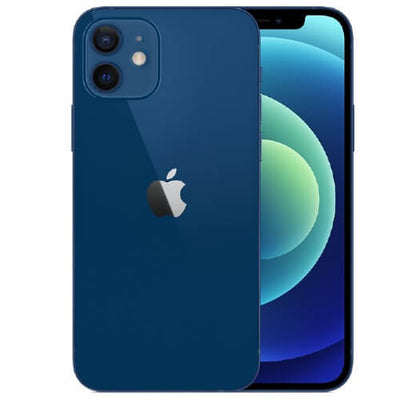Introduction
The smartphone market has been witnessing a decline in recent years, marked by companies resorting to discounts to maintain sales. However, there is a notable exception to this trend in the form of Apple. Despite its premium pricing and the absence of discounts, Apple continues to increase its market share. This raises the question: why are so many people opting for iPhones?
Several factors contribute to Apple's success. As global incomes rise, more individuals can afford high-end products like iPhones, playing to Apple's advantage. Additionally, Apple deliberately establishes a minimum price for its iPhones, creating a sense of exclusivity and aspiration. Owning an iPhone has become synonymous with status, especially in developing or newly industrialized countries.
Moreover, Apple strategically utilizes the network effect, ensuring its products improve with more users. Whether through iMessage or FaceTime, Apple crafts seamless and exclusive experiences, encouraging users to remain within the Apple ecosystem. This ecosystem extends beyond smartphones to products like AirTags and HomePod, further bolstering the desire for an iPhone.
Apple's incremental feature releases also contribute to its success. Perfecting each feature ensures a reliable and consistent user experience, cultivating a loyal following.
Furthermore, Exploring Apple's commitment to consistent pricing without discounts reinforces the value of owning its products. This has led to Apple devices retaining their value over time, presenting them as secure investments.
Lastly, the decline of Huawei, once a significant competitor, has opened doors for Apple to attract new users who were previously loyal to the Chinese brand.
In conclusion, a combination of rising incomes, the network effect, strategic feature releases, consistent pricing, and the decline of competitors positions Apple as a dominant force in the smartphone market. The allure of iPhones extends beyond features, tapping into the aspirations and desires of consumers globally.
Rising Incomes and Aspirational Branding
Global income growth has made high-end products like iPhones more accessible, favoring Apple's premium brand positioning. Apple intentionally sets a minimum price point, fostering a sense of exclusivity and aspiration. This pricing strategy is particularly evident in developing countries like India, Indonesia, and Vietnam, where owning an iPhone is linked to social prestige.
The power of the network effect further enhances Apple's appeal. Exclusive features like iMessage and FaceTime, coupled with seamless integration with other Apple devices, create a cohesive user experience. This ecosystem extends to products like AirPods and HomePod, reinforcing the desire for an iPhone.
Apple's deliberate, gradual release of features contributes to its success. Each feature is perfected, ensuring a reliable and polished experience that resonates with a loyal user base.
Consistent pricing without discounts reinforces the value of owning an Apple product. This approach results in Apple devices retaining their value over time, making them a secure investment.
The decline of Huawei provides Apple with an opportunity to capture new users who were once loyal to the Chinese brand. As Huawei's market share decreases, Apple solidifies its dominance in the smartphone market.
In conclusion, the combination of rising incomes, aspirational branding, the network effect, strategic feature releases, consistent pricing, and the decline of competitors positions Apple as a leading force in the smartphone market.
The Power of Network Effects
Apple strategically employs network effects, enhancing the value of its products as more users join the ecosystem. This phenomenon is evident in the seamless integration of Apple devices, such as iPhones, Macs, and iPads, creating an exclusive and efficient user experience.
The network effect occurs when a product becomes more valuable with an increasing user base. In Apple's case, the interconnectedness of their products, like iPhones and Macs, maximizes user engagement and growth.
Apple's engineered products optimize network effects. Exclusive features like iMessage and FaceTime incentivize users to stay within the Apple ecosystem. This exclusivity extends beyond smartphones to products like AirTags, HomePod, and AirPods, reinforcing the desire for an iPhone.
iMessage and FaceTime exemplify network effects in action. The more iPhone users there are, the more people can benefit from the enhanced messaging and calling experiences. The broader Apple ecosystem, including the App Store, further solidifies the dominance of Apple's network effects.
Apple's understanding and strategic implementation of network effects significantly contribute to its growth in the smartphone market. By creating exclusive and seamless experiences, Apple fosters a loyal user base that stays within the ecosystem.
Network effects also increase the value of owning an Apple product. As the user base expands, so does the value of the product. Apple's consistent pricing strategy reinforces the perception of its products as a secure investment that retains value over time.
In conclusion, Apple's mastery of network effects through products like iMessage, FaceTime, and its broader ecosystem plays a crucial role in its rise in the smartphone market. The exclusive and seamless experiences created within the Apple ecosystem contribute to user loyalty and solidify Apple's position as a dominant force in the industry.
Shift in Consumer Attitudes
The maturation of the smartphone market has led to a shift in consumer attitudes, favoring reliability and consistency over new and experimental features. Apple's approach of perfecting features and ensuring a polished experience aligns with these consumer expectations.
In mature markets, consumers are inclined to prioritize established habits, apps, and platforms. Apple's steady feature releases cater to this need, providing significant upgrades without overwhelming users.
Apple's advantages over Android companies, which initially led in offering new features, are becoming more evident. While Android companies struggle to maintain their initial pace, Apple has closed the gap, leaving them with fewer unique selling points.
Consumers are drawn to Apple's polished and controlled approach. The commitment to a consistent user experience has created a loyal following. This loyalty extends beyond smartphones to other Apple products like AirTags and HomePod.
As incomes rise globally, the appeal of owning expensive products like iPhones grows. Apple strategically leverages this trend, offering a premium and reliable smartphone experience.
In conclusion, shifting consumer attitudes, combined with Apple's strategic approach, have positioned the company as a dominant force in the smartphone market. The emphasis on reliability, steady feature releases, and a consistent user experience contributes to Apple's success.
Value Retention and Price Consistency
Apple's pricing strategy and resistance to discounts play a pivotal role in its success in the smartphone market. While other companies resort to discounts to maintain sales, Apple remains steadfast in its commitment to consistent pricing.
By avoiding discounts, Apple protects the perceived value of owning its products. This strategy reinforces the notion that Apple devices are premium and exclusive, fostering a sense of aspiration among consumers.
In contrast, competitors like Samsung often devalue their products through promotions and discounts. Although such strategies may attract consumers in the short term, they erode the perceived value of the products over time. Apple's pricing strategy ensures that the value of owning an iPhone remains high.
Apple's pricing consistency contributes to the trust and security associated with the brand. Consumers know that the price they pay reflects the true value of the product without the uncertainty of hidden discounts or sudden price fluctuations.
This approach has an additional benefit for consumers: it helps retain the value of their investment. Apple devices are known for retaining their value over time, providing consumers with a sense of security and a reliable return on investment.
In conclusion, Apple's pricing strategy, coupled with its resistance to discounts and commitment to value retention, has been instrumental in its rise in the smartphone market. By safeguarding the perceived value of owning an Apple product, the company has established itself as a trusted brand offering investment security for its customers.
Seizing Opportunities: Huawei's Decline
The decline of Huawei, once a formidable competitor in the smartphone market, presents a unique opportunity for Apple. The US-China ban on Huawei has significantly impacted the company's operations, limiting access to key technologies and components and resulting in a decline in market share.
This decline offers Apple a golden opportunity to capitalize on Huawei's former user base. Millions of loyal Huawei users are now seeking alternatives, and Apple is well-positioned to attract this new customer segment. These potential users are in search of a reliable and premium smartphone experience, a hallmark of Apple's offerings.
Apple's ability to set a minimum price point for its iPhones enhances its appeal to former Huawei users. The exclusivity and aspirational branding associated with Apple products make owning an iPhone a status symbol, particularly in developing and newly industrialized countries. As global incomes rise, more individuals can afford premium products like iPhones, and Apple is poised to cater to this expanding market.
Furthermore, Apple's network effects play a crucial role in attracting former Huawei users. Exclusive features like iMessage, FaceTime, and seamless integration with other Apple devices create a cohesive and exclusive user experience that encourages users to transition to the Apple ecosystem.
Consistent pricing without discounts reinforces the value of owning an Apple product, making it a compelling choice for former Huawei users. This strategy ensures that Apple devices retain their value over time, providing users with a sense of security in their investment.
In conclusion, Huawei's decline in the smartphone market has created a significant opportunity for Apple to capture a substantial number of new users. With its premium branding, network effects, consistent pricing, and reputation for value retention, Apple is in an ideal position to capitalize on Huawei's downfall. Former Huawei users now have the chance to join the Apple ecosystem and enjoy the benefits of owning an iPhone, creating a win-win situation for both Apple and these new customers.
Conclusion
In summary, Apple's success in the smartphone market is attributed to several key factors that make iPhones a popular choice among consumers globally.
Rising incomes:
Global income growth enables more people to afford high-end products like iPhones, favoring Apple's premium brand positioning.
Aspirational branding:
Apple's intentional pricing strategy creates a sense of exclusivity and aspiration, making owning an iPhone a status symbol.
The power of network effects:
Apple strategically leverages network effects to create exclusive and seamless experiences within its ecosystem.
Strategic feature releases:
Apple's approach of releasing features slowly and steadily ensures a polished experience and cultivates a loyal following.
Value retention and price consistency:
Apple's consistent pricing strategy without discounts reinforces the value of owning an Apple product.
Opportunity from Huawei's decline:
The decline of Huawei provides Apple with an opportunity to capture new users seeking a reliable and premium smartphone experience.
Despite its premium pricing and the absence of discounts, Apple's market share continues to rise. The combination of rising incomes, aspirational branding, the power of network effects, strategic feature releases, value retention, and the decline of competitors positions Apple as a dominant force in the smartphone market. iPhones are highly sought after for their features, exclusivity, and the desires of consumers worldwide.
FAQ
Here are answers to some frequently asked questions about buying iPhones:
1. Why are iPhones more expensive than other smartphones?
iPhones are positioned as premium products in the smartphone market. Apple intentionally sets a minimum price point for its iPhones to create a sense of exclusivity and aspiration. This pricing strategy, combined with Apple's reputation for quality and design, contributes to the higher cost of iPhones compared to other smartphones.
2. What are the benefits of the Apple ecosystem?
The Apple ecosystem offers seamless integration between different Apple devices and services. Features like iMessage, FaceTime, and AirTags create exclusive and cohesive user experiences. Users who own multiple Apple devices can easily switch between them and enjoy a consistent Apple experience. The ecosystem also extends to the App Store, where developers prioritize developing apps for iOS, providing a wider range of options for iPhone users.
3. How does Apple maintain customer loyalty?
Apple cultivates customer loyalty through its commitment to quality, reliability, and consistency. By releasing features slowly and steadily, Apple ensures a polished experience and addresses past pain points. This approach creates a loyal following who appreciates the reliability of Apple products. Additionally, the seamless integration within the Apple ecosystem and the value retention of Apple devices contribute to customer loyalty.
4. What sets Apple apart from its competitors?
Apple differentiates itself from its competitors through several key factors. The deliberate pricing strategy, premium branding, and aspirational appeal of owning an iPhone set Apple apart. Additionally, the power of network effects, the strategic release of features, and the commitment to quality and user experience contribute to Apple's unique position in the smartphone market.
5. Are there any upcoming challenges for Apple in the smartphone market?
While Apple continues to thrive in the smartphone market, there are always challenges to be aware of. One potential challenge is the constant evolution of technology and consumer preferences. Apple must continue to innovate and adapt to meet changing demands. Additionally, competition from other smartphone manufacturers, especially those offering budget-friendly options, poses a challenge to Apple's premium positioning.






















